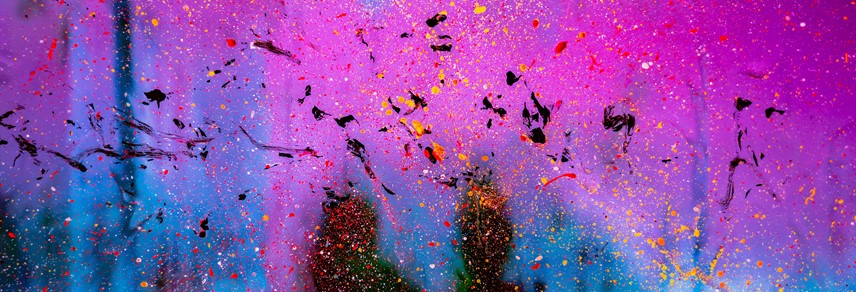
SUSTAINABILITY AND THE NEED FOR CREATIVITY
Is 'greywashing' worse than greenwashing? Nina Pickup, creative director at sustainability consultancy Salterbaxter, considers the dangers of underestimating the role of creativity in the sustainability space.
The role of creativity in the sustainability space has gained a bad reputation. Fuelled by the cynicism and negativity caused by greenwash, and amplified by rules like the Green Claims Code, creativity is being devalued, you could say even demonised, as a tool for tackling climate change and social inequalities.
This is a mistake and a misconception that needs to be challenged and changed. For those tasked with transforming their sustainability strategies from ambition into action, creativity is an essential tool.
Creativity is how strategies are lifted from dull PowerPoint presentations to become something that lives and breathes in the real world. It’s how strategies reach and engage people to inspire new thinking, change behaviour and drive transformation at the scale and pace we need. Businesses cannot do it alone. They need people to turn their promises into genuine progress. They need creativity.
So, creativity itself is not the issue; credibility is. When it comes to a sustainability strategy and its communication, it’s not the role of creativity that should be called into question but the underpinning of creativity with credibility.
The emergence of greywashing
For now, the greenwashing challenge is front of creative minds – and rightly so. And with the introduction of the Green Claims Code to hold those businesses who are making misleading or unsubstantiated ‘green’ claims to account, this lens will only become sharper. The fear is that business will head too far in the opposite direction.
While the sustainability world has focused much of its efforts on combatting the dangers of greenwashing – the outcome of creativity without the necessary credibility to back it up – at the opposite end of the spectrum a new trap has emerged. That of technically correct and potentially powerful sustainable strategies that lack the creativity needed to activate them. It’s a concept we’ve named ‘greywash’, an unfortunate by-product of credibility without creativity.
Greywash is the creative void that holds back progress and business transformation. It is present in those dry sustainability strategies that aren’t creative, don’t challenge, don’t inspire and so fail to drive engagement or create meaningful change. Solid strategic thinking remains stuck in boardroom presentations and spreadsheets and isn’t translated into something that connects with people on an emotional level. It’s where consultancy leads and the creative activation of that strategy is, at best, an afterthought.
Rethinking how we reward creativity
A change in perception towards the role and value of creativity, particularly in the sustainability space, needs to be given a drastic rethink – right down to how we reward communicators for their creativity. Creative success cannot be attributed to one-off tactics (however creatively well-executed) and should only be regarded as successful if they drive long term, positive impact and behaviour change.
This year we heard comments from PR Lions judges themselves concerned that some of the entries seemed more like one-time stunts rather than being deeply embedded in business strategy. Our industry will increasingly be held to account on this issue and awards programmes like Cannes Lions need to change to reflect and address these concerns.
Whether designed to deceive or just arising from a lack of understanding and awareness, green veneers will continue to be applied to creative campaigns. But it’s our job as custodians of the creative industry, and the planet, to see them, avoid them and certainly not reward them. Creativity should be judged in the context credibility, impact and progress.
It’s not just about looking good. It’s not even just about doing good. It’s about doing enough good in the time we have. That’s real progress. That’s what happens when creativity and credibility work together and that’s what should win the next generation of creative awards, and ultimately accelerate us towards the sustainable future we need.



